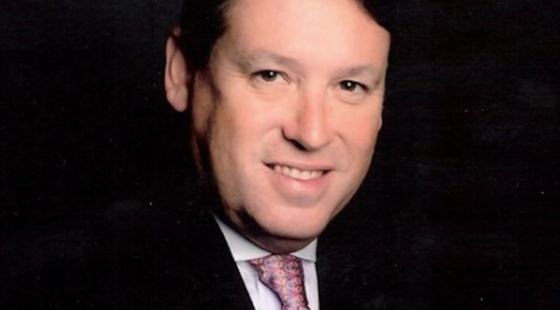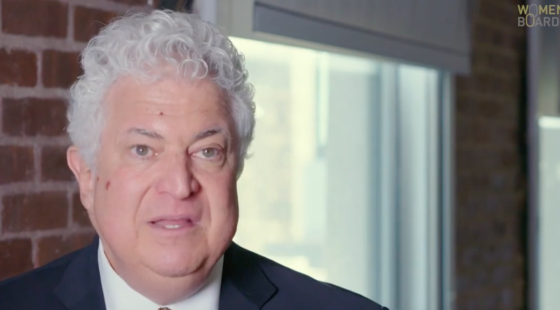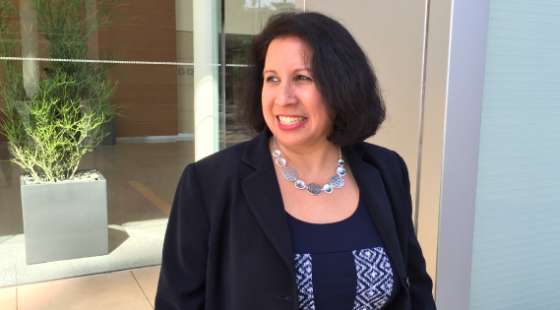
CAROL L. COUGHLIN
Founder and CEO, BottomLine Growth Strategies, Inc.
Chair, former Audit Committee Chair, Hamilton Bancorp, Inc., (NASDAQ: HBK)
Director, Financial Affairs Chair, University of Maryland Medical Center
Trustee, Maryland 529 Board
VIP Member, Women in the Boardroom
Carol’s keys to success:
- Know your value proposition to a potential board. Focus on polishing your message and board documents.
- Do your homework, whether it is in preparation for a new board opportunity or your first board meeting. Make a strong first impression.
- Finding a board seat is akin to finding a new career opportunity (but harder). Know that it will take a lot of effort to meet people, research opportunities and sharpen your skills to
improve your chances as a candidate.
Carol, how did your journey to the boardroom as a corporate director begin?
I started my career working for turnarounds and high-growth healthcare companies. My first large scale turnaround/growth situation led to a promotion to CFO. I was fortunate enough to have a wonderful mentor who moved me from one turnaround situation to another – we completed three successful turnarounds and the sale of two companies together. Through this experience, I worked closely with several boards and took on my first non-profit board seat shortly after becoming CFO. In fact, I served on several non-profit, corporate, government and university advisory boards before the first corporate board seat came along. And, surprisingly, I wasn’t looking for it! Hamilton Bank, a mutual bank at the time (subsequently converted to public company in 2012), was looking for an audit committee chair. I had known the CEO of the bank professionally before he inquired about my interest in serving on their board. The bank had a great reputation in the community and the CEO was well respected.
What characteristic or behavior did you exhibit that you believe was a critical factor in your successful candidacy for your first board appointment?
There were several other people that were considered for this first board seat. In particular, the bank was seeking someone with strong business and finance acumen that could head the audit committee. As a former CFO with growth and turnaround experience, I was very qualified to be on this board even though I did not have banking experience.
One of the other characteristics that set me apart from others was my proven leadership and strong connection to the business community in the local area. This gave comfort to the board that I was a known entity with a positive reputation. And, although I didn’t have any bank experience, I was able to highlight my experience with highly regulated companies (healthcare).
How did you prepare – in every sense: emotionally, intellectually, practically – for your first board meeting and in what ways did that preparation pay off?
I am a bit of a perfectionist, and I wanted to shorten the learning curve and be a contributor from the beginning of my board service at Hamilton (and I’ve taken this approach for the other two boards I have joined since). I was learning not only about this bank, its history and strategies but also about banking in general. I prepared for the first meeting the way I do when onboarding a new client in my growth advisory practice – by reviewing several months of financials, board meeting materials, the strategic plan, and information about the regulatory environment. I met with the CEO and CFO ahead of my first board meeting to address questions and get some historical and current context. I met with the board chair to get to know him better. With this as a start, I felt more prepared to add value from the first board meeting. I think this type of diligence is important ground work for any board service. Going through this process also gave me more confidence in fully participating in board discussions from the first board meeting.
What have you learned about yourself through serving as a corporate board director – how have you grown?
I have learned how much I enjoy collaborating with other board members as well as management on strategic matters, asking questions and challenging appropriately, and mentoring depending on the situation. I appreciate and have seen how a strong board can be an asset to an organization. The corporate world is very dynamic, and asking good questions is important. As board members, we need to recognize patterns and read the tea leaves to know when things are changing in the external environment. I believe that as a board member, I don’t know all of the answers but need to be good at asking questions. This comes to me pretty naturally. In my growth consulting practice, I help CEOs and boards of high-growth companies to grow profitably and sustainably. That requires asking a lot of questions and developing a strong rapport with CEOs, their management teams and the board.
Help, hindrance or both – how does board service complement your professional career?
I have found board service very complementary to my professional career as the founder of a growth advisory firm. In my practice, I coach and mentor CEOs and boards to help their companies grow profitably and sustainably. This requires not only a strong financial and strategic ability but also excellent relationship skills. I enjoy the impact I can make on my clients in helping them navigate challenging situations.
These skills are completely transferable to board service, and on a daily basis, I move from board member to coach to mentor. I significantly enjoy the challenge, collaboration and strategy needed to be an effective board member. I enjoy the diversity in experience board work offers in addition to my consulting work.
What is the ONE essential piece of advice you’d give to other senior-level women who are on a journey to their first seat at the table?
I would suggest knowing your value proposition to a board and being focused on looking for opportunities that fit. There are so many people looking for a board seat, and so few opportunities. A strong value proposition along with a focused list of targets is a good start. Then, find people you know who have connections to board members or influencers of the board.
Carol L. Coughlin is Founder and CEO of BottomLine Growth Strategies, Inc., a company that helps small and medium-sized businesses to access the same high-level financial and operational expertise that gives large companies a distinct advantage. In addition, Carol is Chair, former Audit Committee Chair, Hamilton Bancorp, Inc., (NASDAQ: HBK), Director, Financial Affairs Chair, University of Maryland Medical Center, and a Trustee, Maryland 529 Board. She was recognized as one of SmartCEO’s 25 BRAVA! Award winners (2012), The Daily Records’ Maryland Top 100 Women (2012), and Woman in Balance (MyCity4Her, 2012).
Views From The Boardroom is an exclusive series from Women In The Boardroom, where corporate board directors share their experience, insight and wisdom and their view from the boardroom. Corporate board directors interested in participating should email jdanielowich@womenintheboardroom.com
The opinions and experiences expressed by the interviewees do not necessarily reflect those of Women in the Boardroom.






